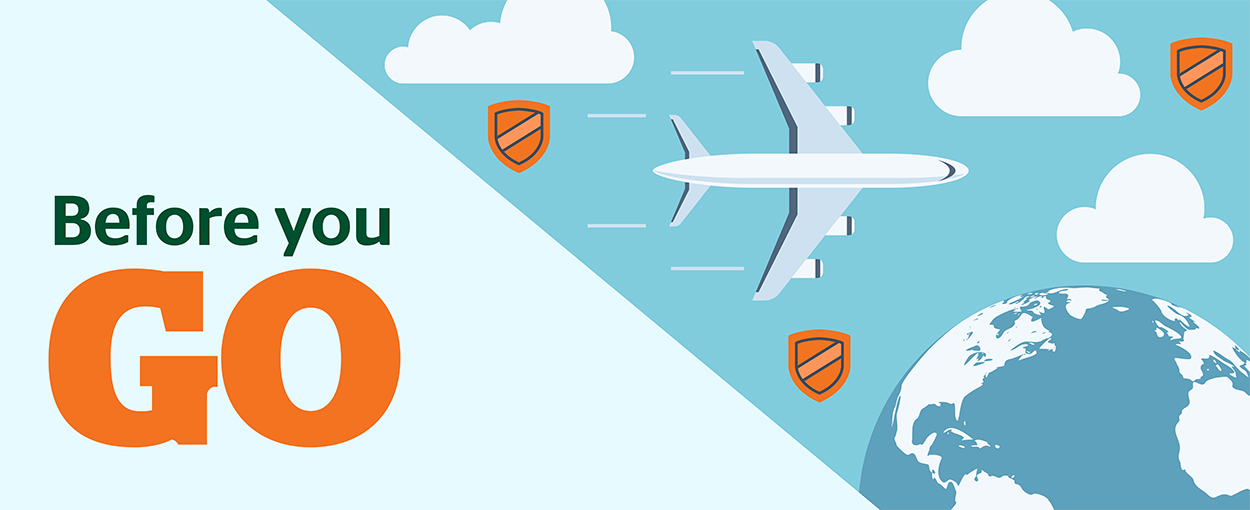This time of year, many people will be traveling to visit family and friends for the holidays.
While you enjoy your travels, cybercriminals are hard at work taking advantage of unsuspecting travelers. We are all aware of potential physical threats, but it is also important to be mindful of digital threats around us – especially when traveling.
As you make plans for the holidays, you should incorporate best cybersecurity practices, such as the tips listed below, to ensure your data remains safe:
- Your personal information is valuable. When making a purchase online, be attentive to the information that is requested to complete your transaction. Provide only essential information to the vendor. Fill out only required fields at check-out.
- Book your trip safely. When making travel arrangements online, make sure the website is legitimate by looking for a lock icon and https:// in the web address bar. This ensures your information is protected using encryption to make your data unreadable.
- Keep your data safe. Avoid providing personal information, such as your passport number or driver's license number, unless it's absolutely necessary.
- Take only what you need. Avoid taking too many devices on your trip. Leave others in a safe location at home.
- Back up your data. Make sure to encrypt the devices you are taking with you.
- Keep your software up-to-date. Apply the most recent application and operating system updates and enable automatic updates before you go.
- Keep your devices with you at all times. Keep an eye on your devices when traveling. It's easy to forget a device while enjoying a cup of coffee or running to catch a flight.
- Use strong passwords. Create strong passwords for all your devices and accounts.
- Be cautious when using public Wi-Fi. Disable your device from automatically connecting to Wi-Fi and hotspots. Connecting your devices to public Wi-Fi and free hotspots leave you vulnerable. If you must use public Wi-Fi, secure your connection using a virtual private network (like the University of Miami's Virtual Private Network (VPN), which can secure your connection on public networks). As a tip, if you log in to your UM CaneID account while traveling, you can easily continue to securely access your account with Multi-Factor Authentication (MFA), by following these travel tips and learning how to use MFA without cellular service.
Don't let cybercriminals spoil your adventures. Before you go, take the steps listed above to travel without worry!
Have questions? We're here to help!
If you have questions about cybersecurity, or if you want to learn more about how to stay safe online, contact the Information Security Office (ISO) at: infosec@miami.edu





